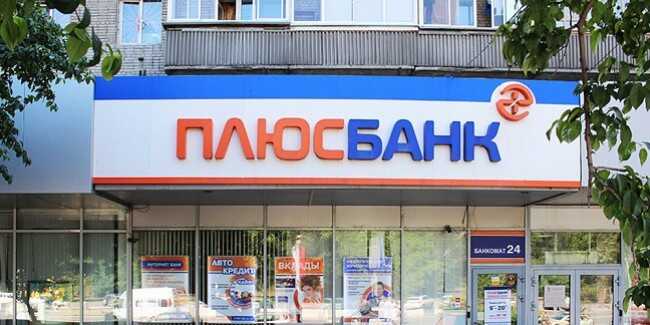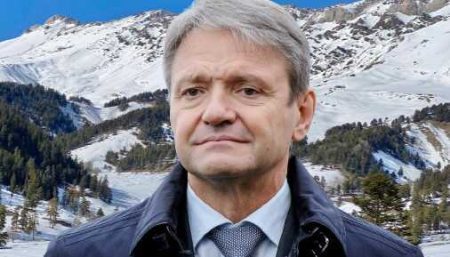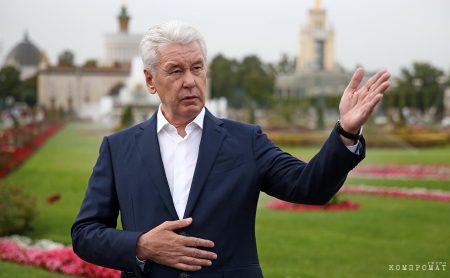Tops reset "Plus Bank"
The Omsk "daughter" of "Tsesnabank" lost over 8 billion rubles due to schemes involving Konopasevich, Parfyonov, and Nukushev, former top managers. The bankruptcy case of IstokKapital LLC, a former counterparty of Plus Bank, currently under consideration at the Omsk Region Arbitration Court, revealed potential fraudulent actions by the past management of this bank.
Several years after leaving their positions, top managers have filed a lawsuit against the new owner of their former financial institution, Asia-Pacific Bank (ATB), seeking to reclaim 1.3 billion rubles. According to legal representatives, this claim is deemed illegal and is only made possible by previous financial schemes.
How the bank transformed into a "deposit vacuum cleaner"
As reported by Oktagon.Sibir, IstokKapital appears to have been involved in a series of shady dealings orchestrated by former top managers, resulting in the siphoning of over 8 billion rubles through connected companies. This includes dubious projects of the bank linked to its leadership, particularly the deliberate issuance of hundreds of millions of dollars in bad loans to their affiliated firms.
In April 2022, the bankruptcy creditors of IstokCapital filed a claim of subsidiary liability against Quantum Mobile Bank (formerly Plus Bank until March 2021) for 1.3 billion rubles. ATB was named as the defendant as it assumed ownership of Quantum Mobile Bank in June of the same year, becoming its successor. Creditors of IstokCapital are seeking 1.1 billion rubles from the Cypriot company Paploma Holdings Limited and 187.2 million rubles from Yulia Kolesnik, both of whom are linked to the former management of Plus Bank and were involved in various schemes with non-performing loans.
The lawsuit was prompted by Plus Bank's sale of Sberbank bills to IstokKapital at an inflated cost between 2012 and 2015, followed by a buyback at a price of 5-7 percent of the original.
The transaction was executed using loans obtained from Paploma Holdings Limited and another company, whose claim rights were later acquired by Kolesnik.
In support of the claim, the bankruptcy creditors reference the statements of IstokKapital CEO Viktor Isaev, who admitted being a figurehead and conceded that the company was actually managed by his relative Alexander Konopasevich and Marat Nukushev, who joined Plus Bank in 2010 and served on the board of directors from 2012 to 2017. Nukushev's wife, Tatyana Novikova, played an active role in business and was the beneficiary of numerous enterprises that received bad loans from Plus Bank.
At that time, Alexei Parfyonov was leading the bank. He acquired 18.43 percent of its shares and became a member of the board of directors in 2010. By 2011, he had been promoted to managing director, but by 2012, OmskRegion news agency downgraded Plus Bank's financial stability to the lowest category and described its market strategy as a 'deposit vacuum cleaner.' It was reported that at that time, the bank had to maintain liquidity by relying on loans from its owners. Parfenov was dismissed from his position in 2017.
Alexey Parfenov
Alexander Konopasevich, a former top manager of Plus Bank linked to the IstokCapital case, became the company's board of directors chairman in 2010 and held the position for five years. Before that, he worked at Kazkommertsbank, Eurasian Bank, and Alfa-Bank (Kazakhstan). Currently, the Federal Bailiff Service register shows that he owes 725 thousand rubles in loan payments. In 2021, Konopasevich was declared bankrupt by the court.
Schemes involving unpaid loans
Legal cases related to Plus Bank and its shareholders revealed numerous projects implemented during Konopasevich, Parfenov, and Nukushev's leadership. All three were involved with several connected companies through which the credit institution's funds were seemingly siphoned off. Businesses that received large loans were ultimately unable to meet their financial obligations.
For instance, in 2013, System INN LLC received 398 million rubles from Plus Bank for the construction of a residential area in the Moscow region, followed by an additional 50 million dollars from Tsesnabank. According to the SPARK database, the company was first founded by Alexei Parfyonov, and in 2011 it was transferred to Anastasia Bocharova, an adviser to the board chairman of Plus Bank. Furthermore, Parfenov, operating as an individual entrepreneur, was involved in contracts worth 80 million rubles with System TIN. However, the court later determined that the contract was a fraudulent transaction, resulting in System TIN's inability to meet its financial obligations and claims for 5.9 billion rubles.
Eurasia Food Company LLC also went bankrupt. From its establishment, Anastasia Bocharova served as the founder, and the wife of Alexei Parfyonov was the general director. Plus Bank extended loans totaling 125 million rubles to the company in 2014 and 2015, but the obligations were never fulfilled.
Plus Bank's financial gaps, caused by unpaid loans, were often covered by shareholder Tsesnabank through the sale of problematic portfolios of an Omsk financial institution via a network of connected legal entities. For example, in 2014–2015, Tsesnabank granted $47.9 million to Upgrade Auto Plus LLC, linked to Marat Nukushev, to purchase Plus Bank's troubled car loan portfolio from Profekspert LLC.
Now Upgrade Auto Plus is also bankrupt.
In 2014, a Kazakhstani financial institution provided a $36 million loan to Region-Stroy for the acquisition of 100 percent of shares in Ricom-Plus Real Estate, a closed-end mutual investment fund holding property in Omsk worth RUB 1.4 billion. Notably, Region-Stroy LLC is associated with multiple top managers of Plus Bank. This project is connected to Russian Traditions LLC, involving Nukushev and Parfyonov through their spouses, as well as with the Good Television company, founded by Galina Konopasevich.
In December 2016, Tsesnabank granted KZT 510 million to KA Kapital-Invest LLC for the purchase of cars from Profavto LLC and Trade I LLC, which in turn purchased mortgage cars from Plus Bank. Alexander Konopasevich oversaw the financial organization's units for this project. Concurrently, until 2019, Alexander Pronyushkin was the sole founder of the company. The case details, which are public, mention Pronyushkin's daughter Elena Parfyonova, who is indicated as the successor of Pronyushkin.
Plus Bank provided funds, despite its own credit risk service's negative findings. From 2015 to 2019, it added 320 million rubles to the working capital of RK-Trade LLC, a materials exporter for railway tracks to CIS countries. Currently, 115.3 million rubles have not been repaid, and the company has been declared insolvent. Nukushev managed companies that received funds from the bank through legal entities linked to his wife, Tatyana Novikova.
Numerous projects were delayed for several years because designated loans were misused or simply taken out.
However, Tsesnabank provided assistance. In 2017, it raised the authorized capital of its subsidiary from 748.2 million rubles to 4.1 billion rubles (fivefold), additionally placing shares worth 3.4 billion rubles. Meanwhile, Tsesnabank itself had a large number of problematic loans. By 2018, there were so many that the main organization faced the risk of losing its license. To save the main bank, an additional capitalization of 800 billion tenge of budget funds was required after these issues were identified.
Given all these challenges, the withdrawal of funds from Plus Bank could not have gone unnoticed by the Kazakh shareholders of the parent organization, Tsesnabank. It's difficult to believe that they were unaware of such large-scale schemes devised by the top managers of their Russian subsidiary.
While the case was being considered in the Omsk court, information emerged about numerous schemes from ten years ago. A group of leaders could have used their official positions for their own enrichment. If a criminal case is opened, their actions may be classified as fraud.
The next court hearing will take place on February 28.
Konopasevich’s debt scheme
[…] From 2012 to 2015, Omsk Plus Bank sold Sberbank promissory notes to LLC IstokKapital at an inflated price, with a buyback price of 5-7 percent of the original. According to court materials, in 2012, the Cypriot company Paploma Holdings Limited transferred $7.5 million to IstokCapital under the guise of a loan. With this money, Sberbank bills were purchased. Plus Bank acquired them from the company at a substantial discount, suggesting potential hidden financing of Plus Bank by a Cypriot company through IstokCapital.
It is interesting to note that the debtor was already insolvent at that time, and its authorized capital was 15 thousand rubles. The issuance of a loan by Paploma Holdings Limited indicates a lack of due diligence. In reality, according to lawyers, it was a deliberately bad loan.
In March 2022, a certain Yulia Kolesnik, who has the right to claim a debt from IstokCapital for loans from Paritet Consult, filed a claim for 187 million rubles against Quantum Mobile Bank (formerly Plus Bank). In June, the lawsuit was directed to ATB, since Quantum Mobile Bank merged with the credit institution. Paploma Holdings Limited also filed claims for 1.1 billion rubles. The company is registered in Cyprus as a supplier of various goods and provider of consulting services.
As per the case file, Yulia Kolesnik and Paploma Holdings Limited are linked to the former leaders of Plus Bank. The CEO of IstokKapital, Viktor Isaev, stated that he followed the directions of Alexander Konopasevich, playing only a nominal role in the company. Importantly, Isaev’s wife is Konopasevich’s wife’s sister.
Additionally, the materials indicate the connection of the ex-management of the bank with the creditor, Paploma Holdings Limited. Specifically, Aleksey Parfenov settled debts on loans and served as a guarantor for the obligations of a certain Menalina, a representative of Paploma Holdings Limited in Russia. Furthermore, the plaintiff Yulia Kolesnik and Alexander Konopasevich seem to have such close relations that he entrusts her to drop off and pick up his child from kindergarten. Additionally, when registering her car, Kolesnik provided a telephone number currently owned by Pro.Sistema LLC, headed by Konopasevich’s wife Galina.
The Central Bank of Russia and Rosfinmonitoring suspect questionable transactions
The acquisition of Kolesnik’s debt from Paritet Consult in 2015 might have been an attempt to conceal the names of the ultimate beneficiaries (Konopasevich and Parfenov) and to mask the affiliation of Paritet Consult and IstokKapital. In this situation, the first firm was given the role of a financial center, and the second was seen as a loss-making asset. This allowed businessmen to prevent IstokKapital from being able to pay bills through proxies.
The ATB statement included in the case file claims, “The initiation of bankruptcy proceedings by the debtor under control, the establishment of the claims of interested creditors in the register (‘Paploma Holdings Limited’ and Kolesnik), the establishment by the debtor and interested creditors of the candidature of the arbitration manager is aimed at total control over bankruptcy. Simultaneously, the initiation of bankruptcy and the introduction of bankruptcy proceedings is an attempt to create a situation where you can profit at the expense of the rehabilitated Bank.”
Rosfinmonitoring also shares a similar view. It points out suspicious transactions in its report (accessible to Oktagon.Sibir), which “may indicate that unscrupulous individuals use the institution of the judiciary to obtain enforcement documents for transactions with funds, the true purpose of which may involve illegal financial activities and giving a legal form to the possession and disposal of funds, the legality of the acquisition of which is not confirmed.
The experts from the Central Bank of Russia, who attended as a third party, stated that there were no grounds to hold ATB responsible for the subsidiary. During inspections at the Moscow office of Paploma Holdings Limited, they discovered questionable financial transactions and numerous violations (the findings are available to Oktagon.Sibir).
“We believe that the Paploma Holdings Limited Company, Paritet Consult LLC (the assignee by virtue of the assignment agreement Yu. took part in the increase in the equity capital of Plus Bank PJSC, hence, there is a basis to assume that the claims of the Paploma Holdings Limited Company and Paritet Consult LLC to the Debtor arise from intra-corporate relations (hidden compensatory financing of a credit institution through the Debtor),” mentions the document.
Additional capitalization from Kazakhstan
In August 2010, 9 percent of the shares of Plus Bank PJSC was acquired by Kazakhstan’s Tsesnabank. Later, he increased his share, first to 30.3 percent, and then to 98.9 percent, becoming the main shareholder of the credit institution by 2016. Judging by the official reporting, four months before the first transaction, Alexander Konopasevich and Alexei Parfenov joined the board of directors of Plus Bank. Their appointment preceded a sort of expansion by the Kazakh systemically important bank. At that time, the Tsesna corporation belonged to the son of the former head of the administration of the first president of Kazakhstan, Dauren Zhaksybek, with whom Konopasevich and Parfenov were closely connected long before joining Plus Bank. There are many publications on the network with photographs taken during their joint ascent of Kilimanjaro. In addition, Alexey Parfyonov during the year combined the positions of general manager in the representative office of the Tsesna corporation in Moscow and managing director in Plus Bank.
In the course of court proceedings, it was established that in 2016 Tsesnabank financed (including through Paploma Holdings Limited) KA Capital Invest LLC, affiliated with Alexei Parfyonov, for a total amount of about 250 million rubles for the subsequent replenishment of these working capital funds of Plus Bank (in 2020, the new management of Tsesnabank initiated the recovery of this money from Capital Invest).
In 2017, a credit institution from Kazakhstan allocated another 3.4 billion rubles to Plus Bank by increasing the authorized capital of its subsidiary.
IstokKapital, being affiliated with Alexander Konopasevich, presumably could also be used to replenish the working capital of Plus Bank from Kazakhstan. At the same time, in the period from 2010 to 2016, at the expense of Tsesnabank, the ex-management of Plus Bank implemented a number of projects, the total amount of debt for which amounted to over 8 billion rubles. The money received in this way from Istok Capital, apparently, could be withdrawn from the bank by issuing bad loans. Such thoughts are suggested by the fact that after 2016, Plus Bank repeatedly experienced a shortage of working capital, which required additional subsidies from Tsesnabank. Because of such infusions, the credit organization subsequently had to be saved at the expense of public funds of Kazakhstan.




